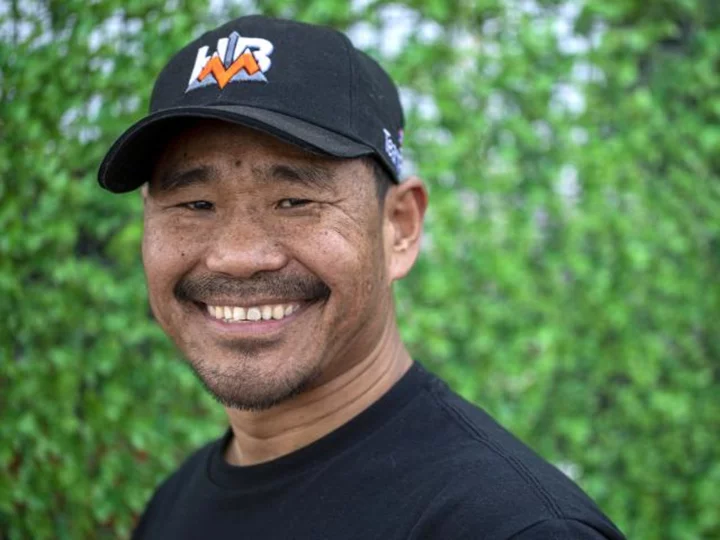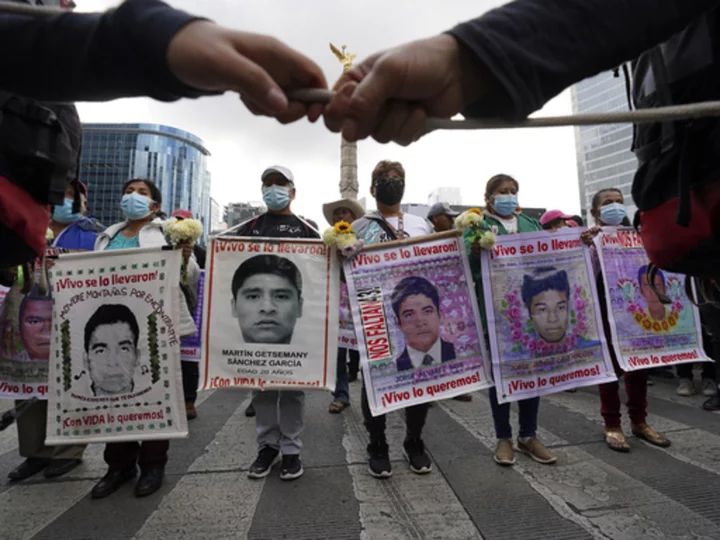A former soldier who lost both his legs in an explosion in Afghanistan has made history by conquering Everest.
Hari Budha Magar, a former corporal in the British Army's Gurkha regiment, reached the summit of the world's highest mountain on Friday afternoon.
The news was announced on Magar's Instagram account two days later.
"Thirteen years after losing his legs in Afghanistan, Hari has proved disability is no barrier to reaching the 8,849 metre peak," the post said.
Born in 1979 in a remote village in Nepal, Magar joined the British Army at 19 and spent 15 years with the Gurkhas—a brigade of Nepalese soldiers that has served in the British Army for more than 200 years.
He served across five continents in roles including sniper, covert surveillance and team medic. Then, in 2010, an improvised explosive device detonated while he was on patrol in Afghanistan.
He was rescued by American soldiers and underwent two operations before being flown to the UK for further treatment. Four years later, aged 35, he was discharged.
After some very dark days as he struggled to come to terms with his new life, Magar, who now lives in the UK, "made it his mission to inspire and change perceptions with regards to disability globally," his website states.
He climbed Mont Blanc, Kilimanjaro and the 6,476-meter (21,247-foot) Mera Peak in Nepal, as well as undertaking multiple other challenges, including kayaking, skydiving, paragliding and bungee jumping.
Magar returned to Nepal for the charity climb, supported by a team of Nepalese climbers.
The expedition was led by Krish Thapa, a renowned climber and former chief mountain instructor in the British Army's SAS special forces regiment. The pair had been training together for their epic challenge since 2016.
The team faced freezing conditions, and temperatures were so low that Magar could only spend a few minutes at the top.
In an interview with Britain's PA Media news agency, he said: "All of my jackets were completely freezing. It was all frozen. Even our warm water, we put hot water in the thermos, and that was also frozen and we were not able to drink."
He continued: "When I came down we ran out of oxygen. The guys came up with oxygen... I was bumping down on my bum and we had 30, 40 minutes of oxygen, and we still had about two, three hours to get down."
To reach the summit—a serious endurance test for any climber—Magar had to rely on specially designed prosthetic legs, or "spider legs," as he calls them.
He told PA: "When I climb, I used different legs and we have installed heating socks to make it warm so that I don't lose any more limbs, because I can't afford to lose more. I just climb one step at a time."
According to his Instagram post, Magar said in a satellite phone call from the top of Everest: "That was tough. Harder than I could have ever imagined. We just had to carry on and push for the top, no matter how much it hurt or how long it took. If I can climb to the top of the world then anyone, regardless of their disability, can achieve their dream. No matter how big your dreams, no matter how challenging your disability, with the right mindset anything is possible.
"When things got really tough it was the thought of my amazing family and everyone who's helped me get onto the mountain that pushed me to the top. Without the support of so many this expedition simply wouldn't have been possible."
Magar is not the first double amputee to conquer Everest—New Zealander Mark Inglis claimed that record in 2006. Double amputee Xia Boyu from China also scaled Everest in May 2018 on his fifth attempt.
However, Inglis and Xia are both below-knee amputees, making Magar the first person with his disability to claim the record.
"Above knee and below knee is a huge difference," he said in an interview with CNN back in 2019. "Having a knee is so advantageous. You can lift your leg up and down. But (without a knee) you're like a penguin."
Magar hopes to raise £884,900 ($1.1 million) for five charities supporting veterans and soldiers—an amount "twice the height of Mt. Everest plus two 00s," he said on his crowdfunding page.
"If I had the opportunity to bring my legs back today, I would actually decline," he wrote. "It was only after losing them that I found my true self, the real Hari Budha Magar. That junction in my life has lead me to where I am today. It has blessed me with encounters with some of the most inspirational and extraordinary souls on the planet and allowed me to discover my mission in life—to help others."









